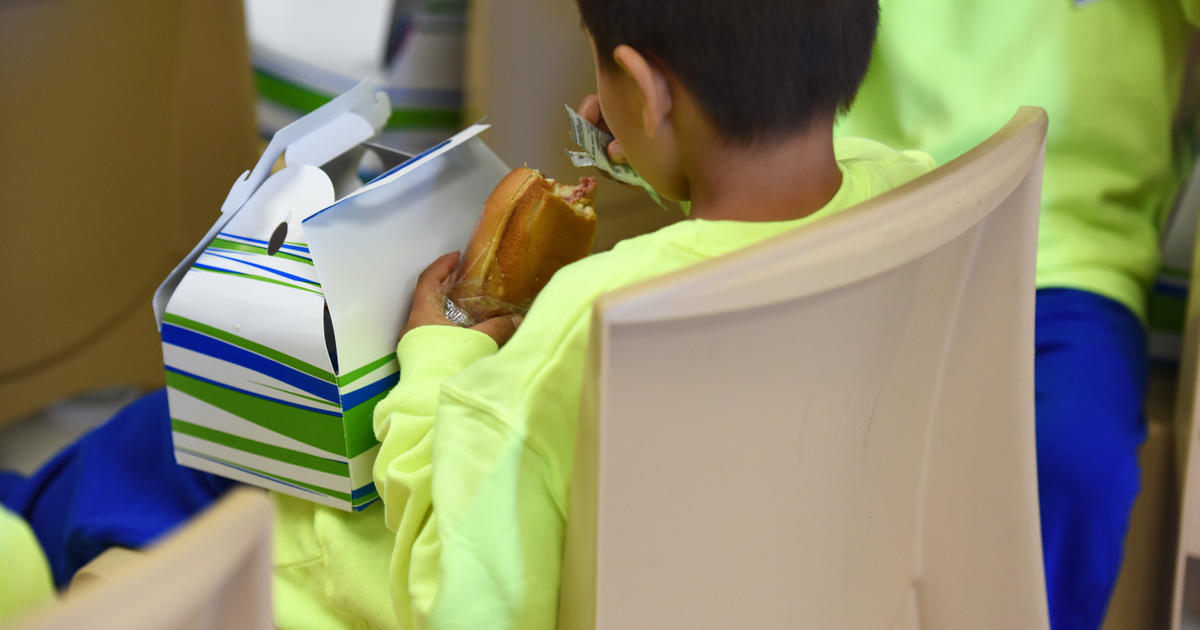The Trump administration on Monday pledged not to expel 17 children who were previously held at a hotel in south Texas after crossing the southern border without their parents — a decision that came less than three days after it faced a new lawsuit against its policy of swiftly removing virtually all unauthorized migrants and asylum-seekers from U.S. soil.
Justice Department lawyers told the U.S. District Court in Washington, D.C., that the U.S. Department of Homeland Security would transfer the minors to the Office of Refugee Resettlement, which operates shelters and housing facilities where migrant children can stay before they are placed with family members in the U.S. or other sponsors.
The decision to allow the group of unnamed unaccompanied children to stay and seek asylum in the U.S. is part of a trend. In another case challenging the expulsions of migrant minors during the pandemic, the government halted the removal of two plaintiffs and allowed them to stay in the country pending regular deportation proceedings. Justice Department lawyers then told a federal judge that the case was moot and should be dismissed.
DOJ told a district court today that the unaccompanied migrant children represented by @TXCivilRights / @ACLU in a suit and who were held in a TX hotel will be transferred to the US refugee agency.
DHS has previously excluded kids from the CDC expulsions order after being sued. pic.twitter.com/FbKjgZjBwQ
— Camilo Montoya-Galvez (@camiloreports) July 27, 2020
Lee Gelernt, an attorney with the American Civil Liberties Union who has been challenging the expulsions, expressed relief that the children, previously held at the Hampton Inn & Suites in McAllen, would not be expelled.
“But, remarkably, the government has said that they will continue to expel children in secret anytime we are not able to locate the child before removal,” Gelernt told CBS News. “The challenge now is to find all of the children and prohibit their removal across the country.”
A spokesperson for the Justice Department, which represents immigration officials in federal litigation, did not respond to a request for comment on why the government decided to exempt the group of children from the expulsion policy.
Citing legal authorities in a coronavirus containment order issued by the Centers for Disease Control and Prevention in March, border officials have expelled more than 2,000 children, denying them the opportunity to request asylum and other humanitarian protections established by Congress. The administration has said the order allows officials to summarily expel migrants without documents instead of placing them in regular immigration proceedings, arguing that they could be potential carriers of the coronavirus.
A bipartisan anti-trafficking law first enacted in 2008 generally requires border officials to quickly transfer unaccompanied migrant children to the Office of Refugee Resettlement. Since the CDC directive was implemented, however, the agency has received few migrant minors. Just 61 children were referred to the agency in June, despite border officials carrying out more than 1,600 apprehensions of unaccompanied minors, according to data first reported by CBS News.
The only pending court case that includes a plaintiff who was not allowed to stay in the country centers is that of a 13-year-old girl who fled gang threats in El Salvador and journeyed to the U.S.-Mexico border to reunite with her mother, who lives in New York and was granted legal refuge in 2018. In June, the mother told CBS News she feared for her daughter’s safety in El Salvador.
“I think this policy is completely unjust,” she said during an interview. “I think they should first evaluate why these children are coming. No parent wants their child to undertake such a journey. But there’s a bigger danger where they are fleeing.”
Efrén Olivares, an attorney with the Texas Civil Rights Project — which has been working to track down migrant children being held in hotel rooms prior to their expulsion under the CDC order — said there’s a litigation strategy behind the administration’s decisions to allow minors named in federal lawsuits to stay in the U.S.
“Most definitely, that is what they are trying to do, to try to evade the issue from being fully litigated while one of these children is still in the United States,” Olivares, the director of the group’s racial and economic justice program, told CBS News.
